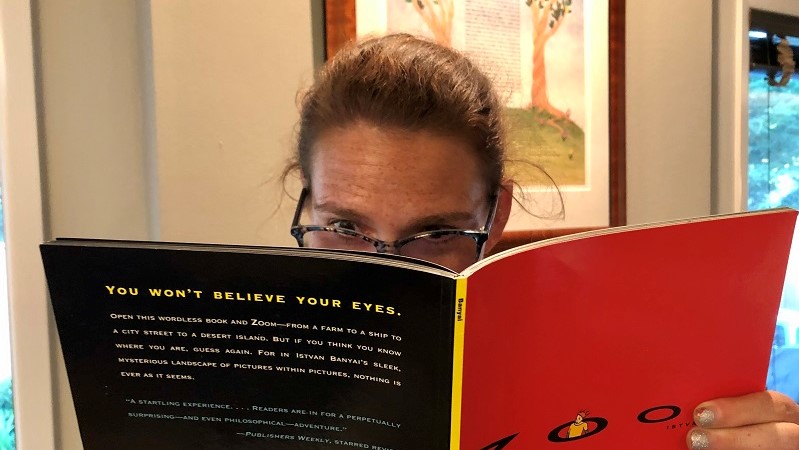As a kid I used to love those brain teaser books that showed you one small part of a bigger picture, and you had to guess what the big picture was. These puzzles are a wonderful metaphor for our lives. What conclusions do we make based on just a small part of the picture? When you only hear one side or one snippet of a story, do you jump to conclusions on the assumption that you understand the situation in its entirety, when in reality you only know the smallest amount? This is also true about communities. Our community is made up of many individuals who come together to create something bigger than themselves. This is what makes a community beautiful.

In a sense, we do this with the Torah by reading one portion at a time. Although we know the story after reading it over and over again each year, these small portions eventually add up to the story of the Israelite nation from birth to entry into the Land of Israel. The text each week gives us one deeper layer than the week before into understanding the bigger picture. Since we, the readers, are with the Israelites from beginning to end, we know them in their entirety, but when the Israelites encounter other communities on their journey, they’re only observed bit by bit. In other words, if you were to encounter the Israelite nation halfway through the Torah, you’d have no context for who they were or what they had been through. That happens in this week’s Torah portion.
This week we read Parshat Balak, a narrative filled with opportunities for taking the right or wrong action and saying the right or wrong words. You know this parshah – it’s of course the one with the talking donkey. Parshat Balak is the story of Balak, son of Tzipur and king of Moav, who solicits Balaam the “prophet” to curse the children of Israel. God allows Balaam to go to the land of Moav, but only if he will speak what God tells him to say. On the way there, Balaam finds himself frustrated with his donkey, who refuses to move. As it turns out, the donkey sees an angel of God in the road. Balaam cannot see the angel, only the donkey can, so Balaam gets angry at his stubborn animal and beats the donkey.
In laying out the scenario to Balaam, King Balak says about the Israelites, “You will see only a portion of them.” One interpretation suggests that in order to curse them, Balaam had to see them with his own eyes, but Balak didn’t want Balaam to get the full view in case he ended up siding with them (which he eventually does). According to another theory, the purpose of this statement is to tell Balaam that while the small number of people he would encounter might not seem impressive, their numbers were actually much greater, and they needed to be fearful and on guard. But in either interpretation, Balak is acknowledging and even admitting that Balaam isn’t getting a complete picture of this nation of people. Instead, Balak is playing mind games and withholding his predisposed and misinformed beliefs.
This is what made these past 15 months truly difficult. For almost a year and a half, we’ve only been seeing a portion of each other at a time. Birnbach Hall wasn’t full of people on Rosh Hashanah. Families weren’t shoulder to shoulder at my house for Fourth Fridays. Even those times when we had a hundred or more people on Zoom together, you can only fit a certain number of people on the screen at a time. If you “only see a portion” of the people, it’s nearly impossible to get a sense for what this community really means.
As the world starts to open again and more restrictions are lifted, we’re almost at the point where we can once again see the big picture. And as one of the people who has been fortunate to have the vantage point of looking out at our community in its entirety, I can’t wait to have that view again.



